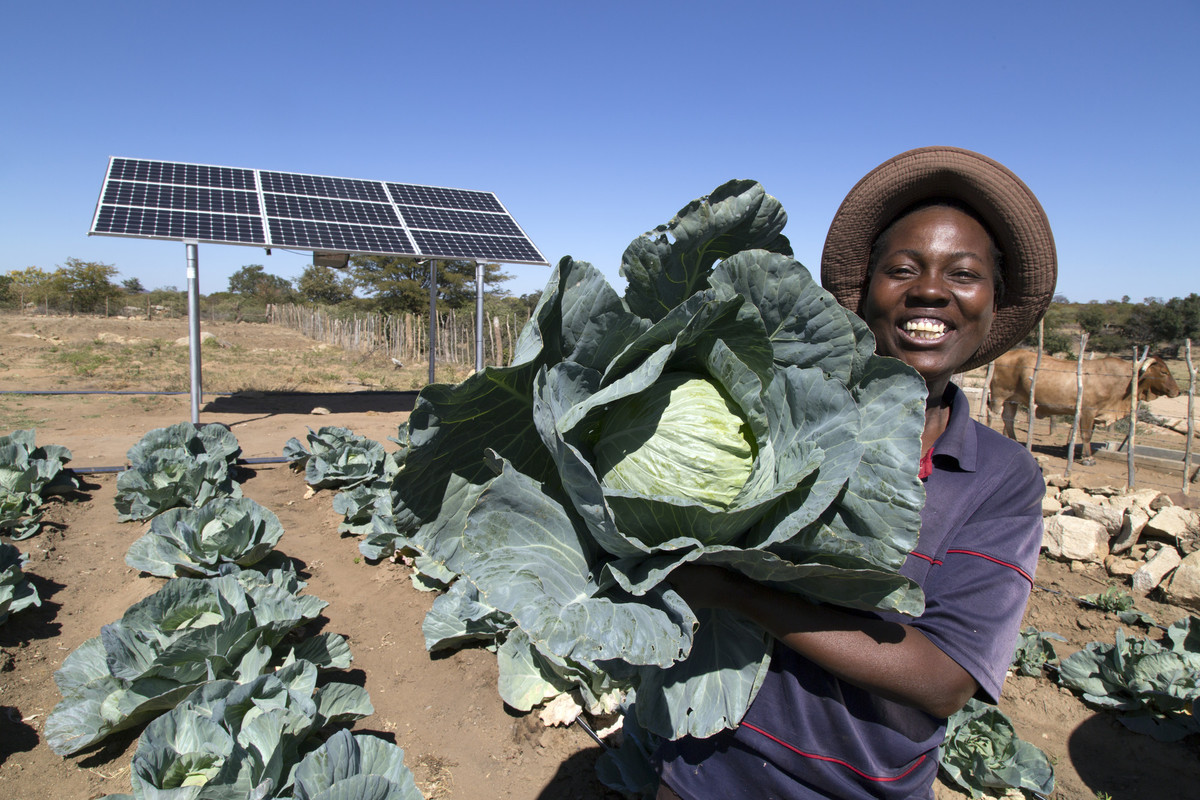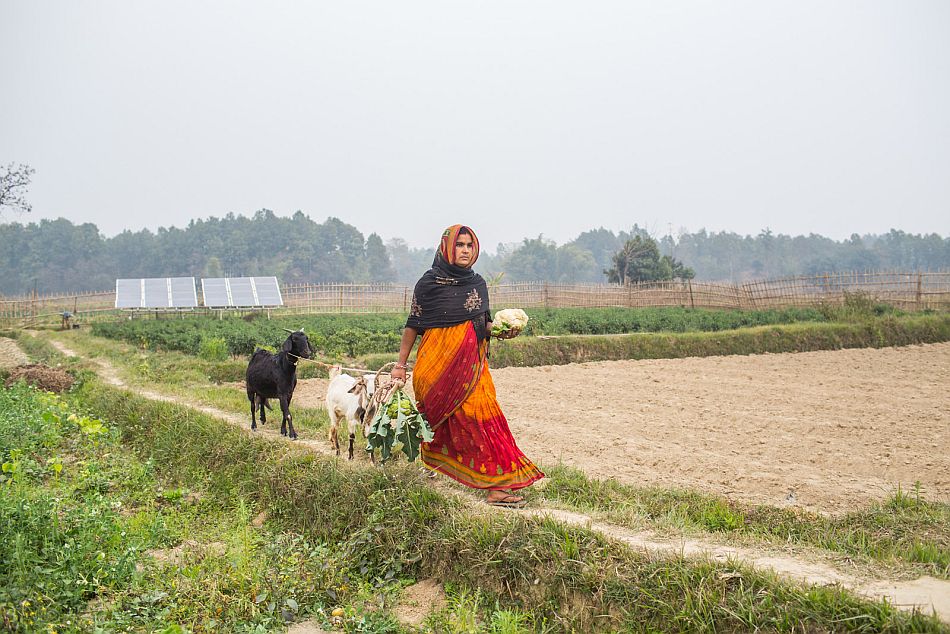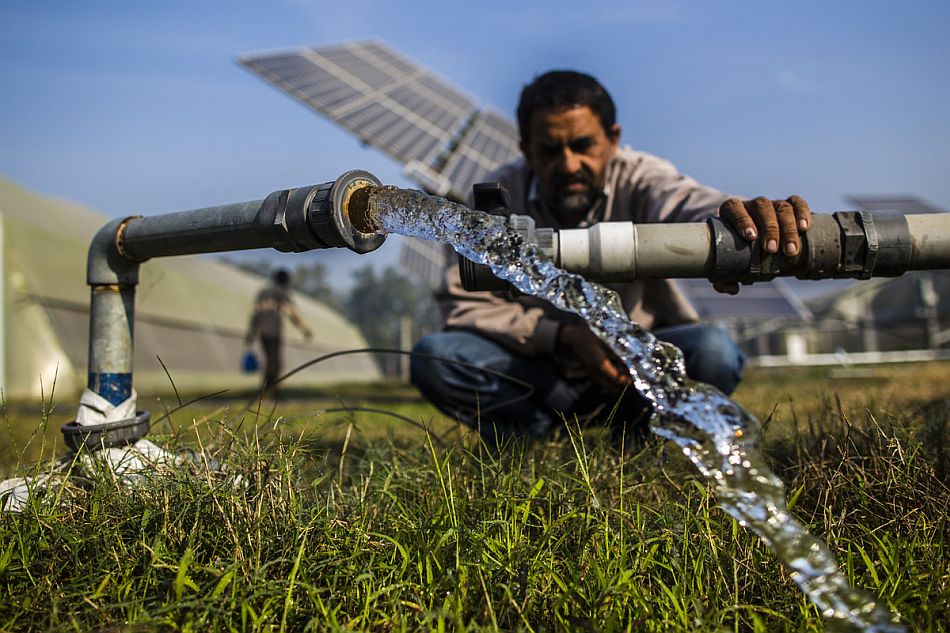Gham Power Nepal Private Limited’s agri-extension services, bundled under “Yield Improvement in a Box,” target to remove the bottlenecks for solar pump uptake by Nepalese farmers.
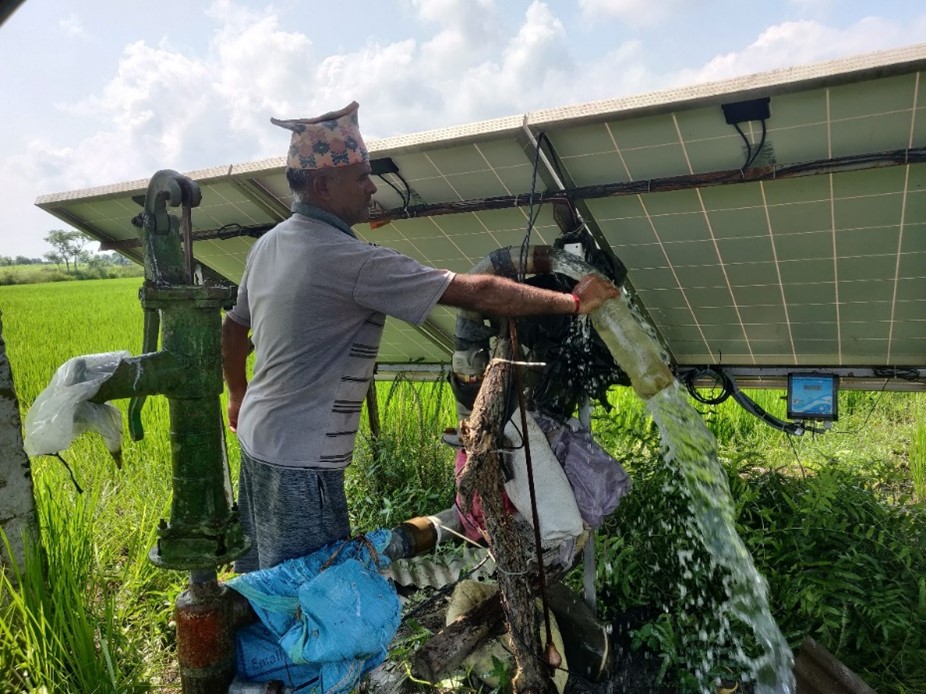
A farmer under a SoLAR Panel on-site / Image credit: SoLAR-SA
Access to on-demand irrigation for smallholder farmers in Nepal is key to moving from subsistence farming to commercial farming to uplift the social and economic conditions. Solar irrigation pumps (SIPs) have been a promising technology for smallholder farmers to access groundwater for irrigation in Nepal’s terai region. Despite being economically feasible and cheaper to operate than diesel pumps, the high up-front capital costs required to acquire the SIPs impose a significant barrier to their widespread adoption.
Thanks to the government subsidy program for SIPs implemented through the Alternative Energy Promotion Center (AEPC), Nepalese farmers’ demand for these pumps has increased over the past few years. But due to the limited budget allocated to subsidize SIPs, not all applicants are successful in acquiring these. The SIP ecosystem in Nepal is still subsidy-driven, and the scale of the SIP market depends on the fund allocated by the government. Additionally, inefficient use of irrigation water, poor SIP design and quality of installations, and weak after-sales service are other significant issues that need to be addressed. Hence, an integrated approach is required to overcome the above challenges.
Gham Power Nepal Private Limited, a renewable-energy-focused social enterprise based in Kathmandu, Nepal, proposed an integrated solution called “Yield Improvement in a Box” to tackle the barriers mentioned above for solar irrigation in Nepal. The solution combines reliable irrigation through SIPs with affordable and accessible financing through a partnership with microfinance institutions. The other essential part of the solution is the digital platform that promotes data-driven farming through intelligent meters and personalized agri-advisory services.
Gham Power used IWMI-SoLAR’s Innovation Fund (IF) grant across its four work packages: (i) social mobilization, awareness building, and capacity strengthening of local agents through training and workshops; (ii) personalized agri-advisory services; (iii) installation of smart sensors at ten sites recommended by AEPC for data measurement and validation of the impact; (iv) technology demonstration for market activation and development.
In February 2022, IWMI researchers attended one of Gham Power’s awareness workshops in Kabilas, Chitwan. The workshop had the participation of women members from Pragati Pariwar Ama Samudya (a women’s community) and was organized in partnership with the local Micro Finance Institution (MFI) Januthan Samudayik Lagubittiya Sanstha. The workshop had three impacts: first, it created farmers’ awareness about SIPs through demonstrations; second, it made farmers aware of APEC’s subsidized SIPs; and third, partnership with local MFI improved the community’s access to finance for acquiring SIP, which otherwise would not have been possible.
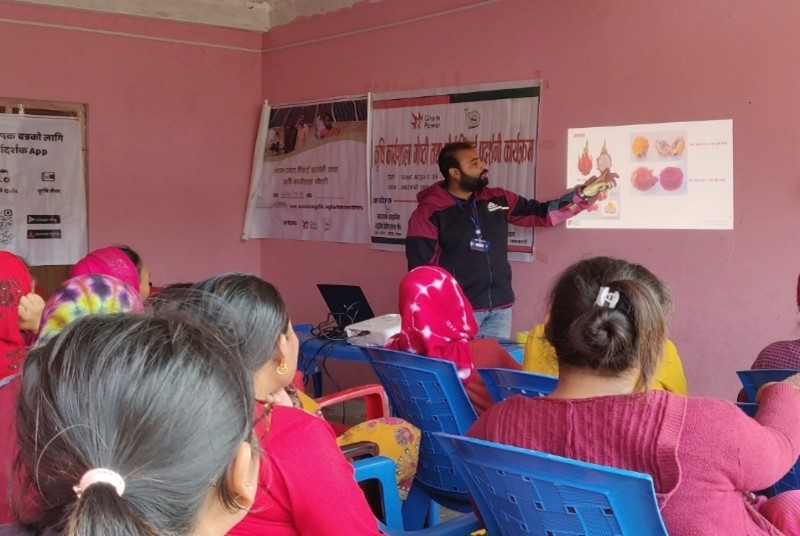
Ongoing training session / Image credit: SoLAR-SA
A significant on-site work that Gham Power is doing, on the recommendation of APEC, is the installation of the smart remote monitoring units (RMUs) targeted for ten sights. Until now, eight installations have been done, in the course of which the company realized the need to identify ideal sensors for the RMUs to work efficiently. The company is hence, using the SoLAR IF grant for the Research and Development of RMU sensors. Systems installed at the eight sites have provided a learning curve for Gham Power to improve the systems for robustness and customizability. At present, Gham Power is working with commercial farmers and farmers practicing aquaculture who have immediate use of the data generated via the RMUs for customized agri-advisory services. However, they are also exploring the possibility of using RMUs for small, individual-level SIPs. At one such pilot site, the SIP farmer said that operating the SIP through a remote unit saves the time he would need to travel to the field just to run the solar pump manually.
Gham Power foresees AEPC and the local governments as early adopters of the smart RMUs who can deploy these to monitor the government-subsidized SIPs’ functioning remotely. This would significantly reduce the monitoring costs for the government bodies and allow them to generate automated data on the SIP’s performance.
Shisher Shrestha, Country Lead, Nepal, SoLAR-SA, IWMI






